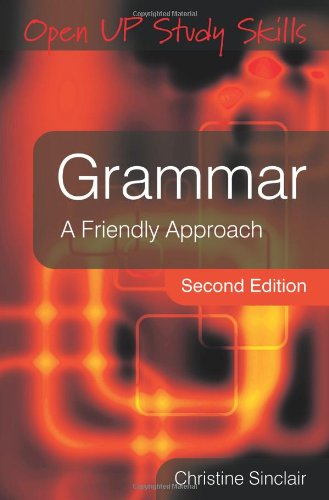

Most ebook files are in PDF format, so you can easily read them using various software such as Foxit Reader or directly on the Google Chrome browser.
Some ebook files are released by publishers in other formats such as .awz, .mobi, .epub, .fb2, etc. You may need to install specific software to read these formats on mobile/PC, such as Calibre.
Please read the tutorial at this link: https://ebookbell.com/faq
We offer FREE conversion to the popular formats you request; however, this may take some time. Therefore, right after payment, please email us, and we will try to provide the service as quickly as possible.
For some exceptional file formats or broken links (if any), please refrain from opening any disputes. Instead, email us first, and we will try to assist within a maximum of 6 hours.
EbookBell Team

4.7
96 reviews
ISBN 10: 0335240860
ISBN 13: 9780335240869
Author: Christine Sinclair
If so, then this book will help you to address your concerns and feel more confident about your writing skills!
This book introduces grammar in a gentle way by illustrating the kinds of issues students may come across by setting them in context using a soap opera style script. Through a combination of the stories of the students and carefully constructed chapters, the book provides details on the essential aspects of grammar, language use and punctuation needed by all university students. There are also exercises to encourage the reader to relate the issues to their own practice and experiences, as well as an extensive glossary which defines the terms that are used throughout the book.
This new edition is completely revised and updated with a new structure covering:
Introduction
1.1 A soap opera in a grammar book
1.2 Questions about grammar
1.3 How the book is structured
1.4 How to annoy teachers and professors
1.5 What students worry about
1.6 Comments on questions
1.7 Conclusion: general advice about grammar and language
Bad Language
2.1 Trying to be posh
2.2 Questions about language
2.3 Idioms: how words are usually used
2.4 Easily confused words
2.5 Going through a bad spell
2.6 Singulars and plurals
2.7 Formal doesn’t have to mean pompous
2.8 What are you trying to say?
2.9 The author, one or I?
2.10 It’s, like, a figure of speech
2.11 Comments on questions
2.12 Conclusion: advice about word choice
Standard Practice
3.1 Why can’t I use my own language?
3.2 Questions about ‘correct’ English
3.3 Standard English: do we need it?
3.4 Examples of uses that are not standard
3.5 Spoken and written English
3.6 Academic English
3.7 Comments on questions
3.8 Conclusion: advice about dialects and Standard English
Who or What Is the Subject?
4.1 A favourite subject – ‘I’
4.2 Questions about subjects of sentences
4.3 Simple and compound subjects
4.4 When subjects move around
4.5 Subject closed
4.6 Comments on questions
4.7 Conclusion: advice about sentences and subjects
Where’s the Action? The Verb
5.1 Doing, being and happening
5.2 Questions about verbs
5.3 Mangling and dangling participles
5.4 Getting tense with verbs
5.5 My past, present and future
5.6 Facts and possibilities
5.7 Comments on questions
5.8 Conclusion: advice about verbs
The Complete Sentence
6.1 Can students write in sentences?
6.2 Questions about sentences
6.3 The sentence as a unit of thought or grammatical structure
6.4 The sentence and punctuation
6.5 Sentences and paragraphs
6.6 Breaking up is hard to do
6.7 Comments on questions
6.8 Conclusion: advice about sentences
What Goes Wrong with Sentences?
7.1 Too much or too little
7.2 Questions about sentence errors
7.3 How to avoid running sentences together
7.4 How to avoid chopping sentences in two
7.5 Sentenced to death!
7.6 Comments on questions
7.7 Conclusion: advice about fixing sentences
Speaking Personally
8.1 Having a voice
8.2 Questions about personal expression
8.3 Reasons for using the passive
8.4 When passives get awkward
8.5 When people get awkward
8.6 Expressing an opinion without saying ‘I’
8.7 Bring me back: reflective writing
8.8 Reflections on what’s going wrong
8.9 Comments on questions
8.10 Conclusion: advice about personal writing
More on Complex Sentences: Relationships and Relatives
9.1 Talking about relatives
9.2 Questions about relationships and clauses
9.3 Words expressing relationship
9.4 Revisiting the subordinates
9.5 Relative clauses: defining and describing a brother
9.6 Every which way but that
9.7 Comments on questions
9.8 Conclusion: advice about relative clauses
How to Be Offensive with Punctuation
10.1 Define without using commas
10.2 Questions about punctuation
10.3 The functions of punctuation marks
10.4 Putting punctuation to work
10.5 Punctuation within words
10.6 A dodgy colon and a full stop
10.7 Comments on questions
10.8 Conclusion: advice about punctuation
That Pesky Apostrophe
11.1 Getting possessive and going missing
11.2 Questions about apostrophes
11.3 What’s happening to the apostrophe?
11.4 How to use an apostrophe to show possession
11.5 How to use an apostrophe to show omission
11.6 Hold the apostrophe!
friendly approach to functional analysis
friendly approachable
grammar a friendly approach pdf
a friendly approach
a friendly approach to functional analysis pdf
a friendly introduction to analysis
what are the approaches of teaching grammar
Tags: Christine Sinclair, Grammar, Friendly